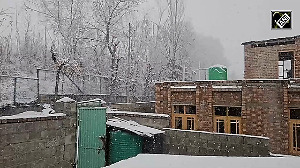You often hear people say, "nothing like living under your own roof!" Of course, this is applied in different contexts and living in a rented house is one of them.
A good landlord who does not bother you much and who does the needful when needed is a blessing not many have. Neither is a good tenant, who takes care of the house properly is a frequently seen sight.
However, there are certain things within your control when you find yourself scouting for a rented house.
Here are some basic guidelines, which should keep you out of trouble. Rental laws again differ from state to state and hence these guidelines are restricted to some general laws.
The verification of these documents are critical, though commercial establishments that take office premises have a legal team to handle the formalities often the lone individual in search of a comfy apartment does not often realize the significance of such things nor do they actually get a chance to verify these details.
Below is a list of important house credentials that can be verified by the person renting the place.
a. Title documents: This is proof that the person renting or leasing out the premises is the actual owner of the place.
b. Share certificates: If the place rented out is part of a co-operative society or colony, share certificates also need to checked.
c. Electricity bills: It is generally in the owner's name.
d. Verification of built-up area of the dwelling place: This is done by a qualified architect.
e. No-objection certificate: This is a certificate that specifies conditions for rent/lease, some do not allow bachelors and may have other forms of bias that is defined in the document.
Rental Agreement
There are several aspects in the lease agreement that you need to be careful about. However, three most significant aspects gain priority over the rest. These include the licence period, the consistency of the license fee through the entire license period, clarity on costs associated with the house such as municipal taxes, society fees and charges, etc.
The owner is expected to bear such costs, conventionally. There should be definitive clause regarding any deposits given initially prior to renting the house.
The legal agreement should clearly state the refund of such deposits when the lease is terminated. This also includes any deposits towards electricity bills, telephone bills, etc. Clauses defining what happens if this expectation is not met also need to be in place.
Usually security deposits that are not refunded within seven days of the expiry of the lease are liable to be refunded with interest for each day's delay.
Care needs to be taken to ensure the landlord does not indiscriminately retain funds from the deposit for supposed damage to the premises, etc.
Below is a checklist the landlord needs to bear in mind:
- Estimate the rental value of the place based on market value with some leeway for negotiation for the person willing to rent the place.
- Do a quick reference check of the person requesting to rent the place. Place of employment and designation are good reference points.
- Be specific and clear about the time period of the lease.
- State facts regarding furnishing upfront.
- Keep all critical documents that refer to the credentials of the premises in tact and handy for verification.
Here is a quick check on associated aspects
Signature on the lease agreement: Ensure either the owner or a person who is the authorized signatory for the owner signs the agreement for it to be valid.
Accounting for furnishing: Make sure the lease agreement includes all fixtures and furnishings with an cost estimate of the same also specified.
Plumbing check: This needs careful scrutiny by the person who rents the place. There should not be any malfunctioning or leakages of the plumbing systems and maintenance costs for the same should be included in the entirety of the lease deal.
These issues have to be discussed upfront before the agreement is made out, which gives either party to opt out if a common ground is impossible to attain.
Some last words
The usual term of the lease agreement is around 11 months with a notice of 2-3 months for either party to terminate the agreement. Notice clause is a must. The lease can be renewed every 11 months based on mutual consent.
Also, there should be a clause that allows you to retain possession of the house till the any dues that the landlord owes including deposit refunds are cleared.
Be clear about any clauses that denote the breach of contract and see you are well protected.
The tenant should also be covered under any circumstance where a sale, mortgage, transfer etc. of the apartment takes place. Here the notice period can be the saving factor, to help you make alternate arrangements.
As the tenant you should be protected against natural calamity hassles. If you have to relocate due to one, you will then not be paying rent for a place you cannot dwell in further.
Also, make sure there are other amenities like car parking, general maintenance, etc.
Ensure all legalities are in place and most important of all brush up your social skills to pave the way for amiable relations with your landlord.
The author is Head of Content & Research at BankBazaar.com
BankBazaar.com is an online marketplace where you can instantly get loan rate quotes, compare and apply online for your personal loan, home loan and credit card needs from India's leading banks and NBFCs.
Copyright 2008 www.BankBazaar.com. All rights reserved.






 © 2024 Rediff.com -
© 2024 Rediff.com -